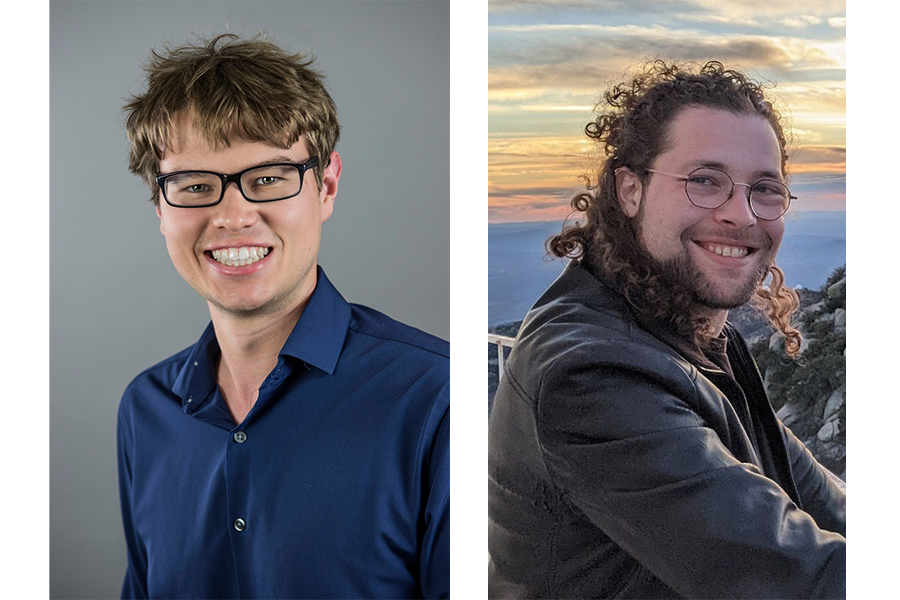Events
Events Calendar
Colloquium: Dr. Kathy Levin, University of Chicago
Thursday, Nov. 16, 2023, 3:35 p.m. through Thursday, Nov. 16, 2023, 4:35 p.m.
B50 Tate
Abstract: This talk will introduce the world of cold atom experiments. This world is engaged in many of the same pursuits as more conventional laboratories which focus on problems in cosmology, chemistry, and condensed matter. There are 2 particularly strong advantages which ultracold gases possess: firstly, at the low temperatures involved, the dynamical evolution is slow enough to be followed in real time. This provides otherwise inaccessible information about very fine details of non-equilibrium physics in a closed system. Secondly one can tune the inter-particle interactions making it possible to have the strongest possible (‘‘resonant") interaction strength. For Fermi systems this provides a prototype for a realizable high Tc superconductors/superfluids. For Bose systems a new form of "superchemistry" can emerge. In this talk we highlight what we can learn from these cold atom studies and how they complement the understanding gleaned from more conventional experiments.
Colloquium: Dr. Frederick Lamb (University of Illinois- Urbana-Champaign)
Thursday, Nov. 9, 2023, 3:35 p.m. through Thursday, Nov. 9, 2023, 4:35 p.m.
B50 Tate
The Growing Danger of Nuclear Weapons:
What Physicists Can Do
Abstract:
Today’s nuclear arsenals pose enormous risks for all humanity. Many agreements that reduced the threat of nuclear weapons have been abandoned and we now face a new, multi-country nuclear arms race that could have devastating consequences. Enormous resources are being expended by the United States, Russia, China, and North Korea to deploy new nuclear weapons and nuclear-armed long-range missiles. New countries are considering acquiring nuclear weapons. The war in Ukraine and other factors have increased the threat they might be used. In past times of danger, scientists and especially physicists have played a critical role in helping citizens and decision makers understand and reduce the threat posed by nuclear weapons, and they can do so again. I will describe a project initiated by the American Physical Society to inform, engage, and mobilize physical scientists and engineers to act now to reduce the current nuclear threat.
Kaufmanis Lecture: Sheperd Doeleman , Founding Director, Event Horizon Telescope
Thursday, Nov. 2, 2023, 7 p.m. through Thursday, Nov. 2, 2023, 8 p.m.
Coffman Union Theater (Registration requested)
About the Lecture : More about the series here.
The Lecture is free and open to the public but registration is requested. Register here
Colloquium: Dr. Thomas Humanic (Ohio State University)
Thursday, Nov. 2, 2023, 3:35 p.m. through Thursday, Nov. 2, 2023, 4:35 p.m.
B50 Tate
Abstract: Tetraquark particles, i.e. particles composed of four quarks, with masses less than 1 GeV/c2 have been predicted for over 40 years. Candidate particles with the predicted masses and charge states have been identified, but to this date it is still controversial as to whether or not these candidate particles, listed in the Review of Particle Physics as two-quark mesons, can be interpreted as tetraquark states. Low-lying mesons that are considered as candidate tetraquarks are the f0(500), K∗0(700), f0(980) and a0(980). These particles are normally studied experimentally in low-energy pp collisions which produce higher-mass particles for which these are the decay products. The method used to produce and study these exotic particles for the present work is two-particle femtoscopy in pp and Pb-Pb collisions at the LHC with the ALICE experiment. Femtoscopy with identical particle-pairs is a method that is usually used to measure the geometry in high-energy particle interactions. By detecting non-identical pairs of ordinary mesons, femtoscopy picks out the strong final-state interaction (FSI) between the mesons in the pair.
Colloquium: Dr. Matthias Hohenberger (Lawrence Livermore National Laboratory)
Thursday, Oct. 26, 2023, 3:35 p.m. through Thursday, Oct. 26, 2023, 4:35 p.m.
B50 Tate
Abstract: At approximately 1 am on December 5th, 2022, a fusion experiment at the National Ignition Facility (NIF) at Lawrence Livermore National Laboratory achieved, for the first time, a target gain exceeding 1. By imploding a small capsule containing deuterium-tritium fuel with 2.05 MJ of laser light, the resulting fusion reactions released a total energy of 3.15 MJ of nuclear fusion yield, thus exceeding the initial input energy. This was the first time for a laboratory experiment to meet the 1997 definition by the National Academy of Sciences of fusion ignition, an accomplishment six decades in the making. It is the result of focused work by a multi-lab team and required significant advances in high-energy-density physics, as well as laser, target, and diagnostics capabilities. This talk will discuss this momentous result, the steps that went into achieving it, and the implications of this achievement for Inertial Fusion Energy.
Colloquium: David Black, Lunar and Planetary Institute, Pepin Memorial Lecture
Thursday, Oct. 19, 2023, 3:35 p.m. through Thursday, Oct. 19, 2023, 4:35 p.m.
B50 Tate/remote via zoom
Professor Pepin, a longtime member of the faculty of the School of the Physics and Astronomy, passed away on January 6, 2023 I will be speaking to honor and recognize the many contributions that Professor Robert Pepin made to our lives: as students, fellow staff members, and members of society, while leading a life of research devoted to studying the evolution of our solar system. As his first graduate student, I have been given the honor of offering some insight into those contributions. A measure of his impact on his students is the Robert O. Pepin Fellowship that was established by his former students in collaboration with the University. That program now provides summer support for two PhD students every year.
Professor Pepin’s academic career took him from Harvard University for his undergraduate work, to the University of California Berkeley for his doctorate, with a three-year break at the Scripps Institute of Oceanography, and then to the University of Minnesota to take over leadership of the noble gas research laboratory. While on sabbatical from the University, he served as Director of the Lunar Science Institute in Houston on from 1974 until 1977. Professor Pepin’s research spanned all of the noble gases, which he used as a probe the geology of our solar system. He worked with samples from bodies ranging from the Sun, the Earth, and the Moon, to Mars, meteorites, and comets. He was one of lead investigators in the Apollo sample return program, both as a researcher and advisor to NASA. His work with nitrogen isotopes led to the discovery that some meteorites found on Earth came from Mars. He was also involved in spacecraft missions that were exposed to solar and cosmic radiation with a focus on the noble gas content and the story they told about the history of the Sun.
Although I ended up as a theorist in planetary science and astrophysics, Bob was always available to provide personal and professional guidance. Home visits with him and his wife Lillian by students were a key part of our evolution as scientists and people. He will be missed.
https://umn.zoom.us/j/99621284022
Colloquium: Leonid Glazman, Yale University
Thursday, Oct. 12, 2023, 3:35 p.m. through Thursday, Oct. 12, 2023, 4:35 p.m.
B50 Tate Hall
The quest for a quantum phase transition in a chain of Josephson junctions has led serendipitously to the invention of a new type of superconducting qubit, which became known as fluxonium. The technology built around it, combined with theoretical efforts, has enabled progress in resolving two puzzles in the physics of superconductors that have persisted for decades.
Colloquium: Dr. Jane Wang (Cornell University)
Thursday, Oct. 5, 2023, 3:35 p.m. through Thursday, Oct. 5, 2023, 4:35 p.m.
B50 Tate Hall
Abstract: Why do animals move the way they do? Bacteria, insects, birds, and fish share with us the necessity to move so as to live. Although each organism follows its own evolutionary course, it also obeys a set of common laws. At the very least, the movement of animals, like that of planets, is governed by Newton’s law: All things fall. On Earth, most things fall in air or water, and their motions are thus subject to the laws of hydrodynamics. Through trial and error, animals have found ways to interact with fluid so they can float, drift, swim, sail, glide, soar, and fly. This elementary struggle to escape the fate of falling shapes the development of motors, sensors, and mind. Perhaps we can deduce parts of their neural computations by understanding what animals must do so as not to fall.
We have been seeking mechanistic explanations of the complex movement of insect flight.. Starting from the Navier-Stokes equations governing the unsteady aerodynamics of flapping flight, we worked to build a theoretical framework for computing flight and for studying the control of flight. I will discuss our recent computational and experimental studies of the balancing act of dragonflies and fruit flies: how a dragonfly recovers from falling upside-down and how a fly balances in air. In each case, the physics of flight informs us about the neural feedback circuitries underlying their fast reflexes.
"I am fascinated by the physics of living organisms, with a focus on understanding insect flight. How does an insect fly, why does it fly so well, and how can we infer its ‘thoughts’ from its flight dynamics? The movement of an insect is not only dictated by the laws of physics, but also by its response to the external world."
-Jane Wang
Colloquium: Dr. Saurabh Jha (Rutgers University)
Thursday, Sept. 28, 2023, 3:35 p.m. through Thursday, Sept. 28, 2023, 4:35 p.m.
B50 Tate Hall
Abstract: Observations of type Ia supernovae (SN Ia), a class of exploding stars, ushered in a cosmological revolution: the expansion of the Universe is accelerating, driven by dark energy. I will describe current cosmological applications of SN Ia to measure the expansion rate of the Universe and constrain the nature of dark energy. Despite the cosmological utility of SN Ia, we still lack a detailed understanding of their progenitor systems and explosion physics. I will present advances in our knowledge of white dwarf supernovae through observations, including new data from JWST, that reveal both surprising homogeneity and diversity. Finally, I will preview SN Ia cosmology with upcoming flagship projects like the Vera C. Rubin Observatory and the Nancy Grace Roman Space Telescope.
Diving into Mathematics with Emmy Noether
Tuesday, Sept. 26, 2023, 3:30 p.m. through Tuesday, Sept. 26, 2023, 5 p.m.
16 Vincent Hall & Coffman Union Theater
Emmy Noether was one of the twentieth century's most important mathematicians. Her contributions, spanning invariant theory, the calculus of variations, abstract algebra, and number theory, combined with her mathematical philosophy have had a profound impact in mathematics, physics, and beyond.
In this session, supplementing the evening's performance of the play Diving into Math with Emmy Noether, the presenters will give short general audience talks on various aspects of Noether's life, contributions, and impact, to be followed by time for questions and a panel discussion.
Agenda
3:00-3:30 Refreshments and socialization, Vincent Hall 120 (Commons room)
3:30-4:30 Presentations and questions, Vincent Hall 16
David Rowe (Institut für Mathematik, Johannes Gutenberg University, Germany) — Emmy Noether: from Invariant Theory to Physics to Abstract Algebra
Peter Olver (Mathematics, University of Minnesota) — The Curious History of Noether's Two Theorems
Peter Webb (Mathematics, University of Minnesota) — Noether's Impact in Algebra
Fiona Burrell (Physics, University of Minnesota) — Noether's Impact in Modern Physics
4:30-5:00 Panel discussion, Vincent Hall 16
7:00 p.m. Performance of Diving into Mathematics with Emily Noether
Coffman Union Theater
Emmy Noether (1882-1935) was one of the most influential mathematicians of the last century. Her works and teachings left a lasting mark on modern algebra, opening new avenues for a new structural perspective in mathematics. Noether was also one of the first women to gain the right to teach at a German university. She acquired that certification (Habilitation) on June 4, 1919, after submitting a thesis in which she solved one of the central problems in Einstein’s general theory of relativity. Her two celebrated theorems relating symmetries of variational problems and conservation laws of the field equations form the cornerstone of modern physical theories and beyond.
To celebrate the centenary of this event and the career of a unique personality in the history of mathematics, the ensemble Portrait Theater Vienna has produced a biographical play, directed by Sandra Schüddekopf and starring Anita Zieher as Emmy. The play is based on historical documents and events, and was written in cooperation with the historians Mechthild Koreuber and David E. Rowe. Further information can be found on the play’s website.
The University of Minnesota is pleased to announce that an English-language version of the play will performed on Sep 26, 2023 at 7 p.m. in Coffman Memorial Theater. Associated events are being planned to showcase the mathematical, scientific, and philosophical impact of Emmy Noether’s legacy.
School News
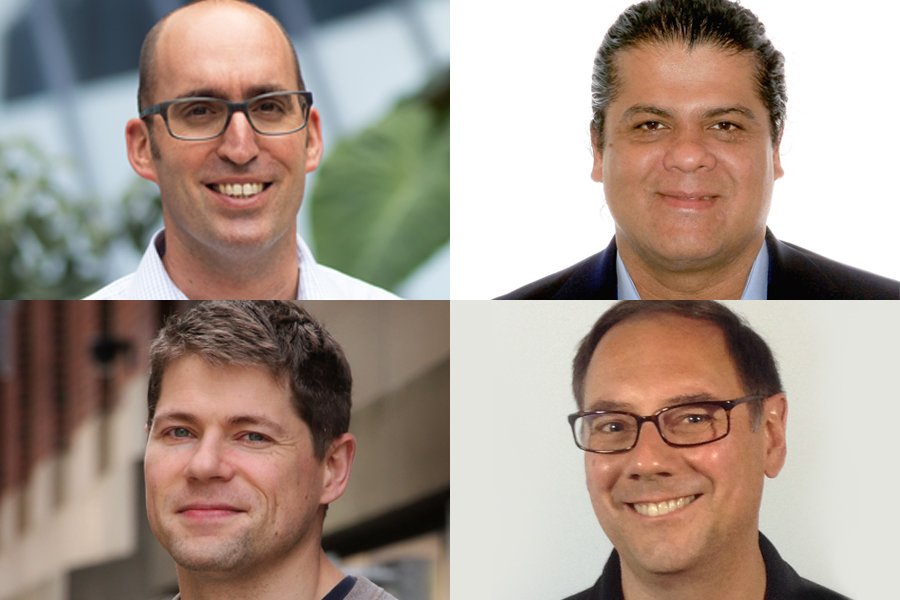
Four new CSE department heads begin in 2024-25
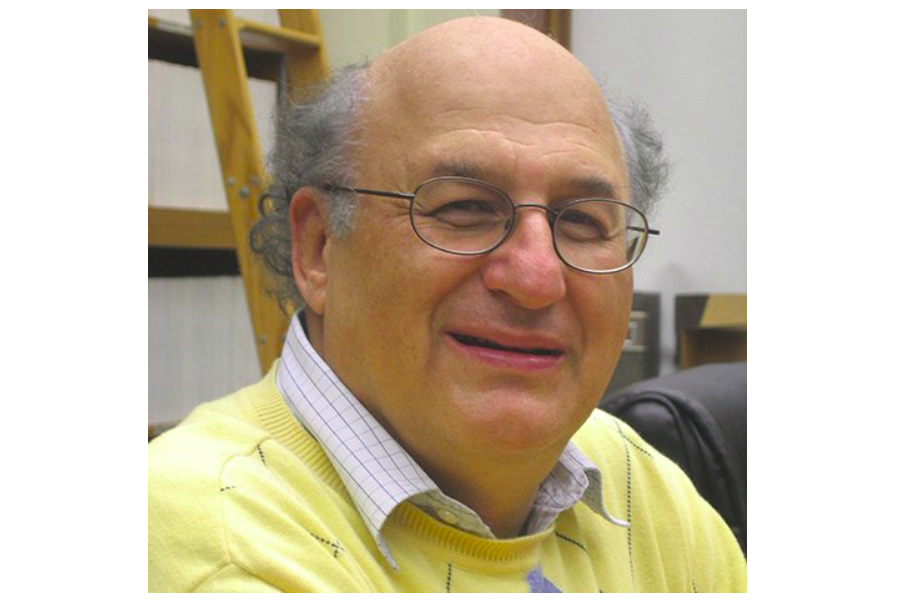
Shifman named Regents Professor
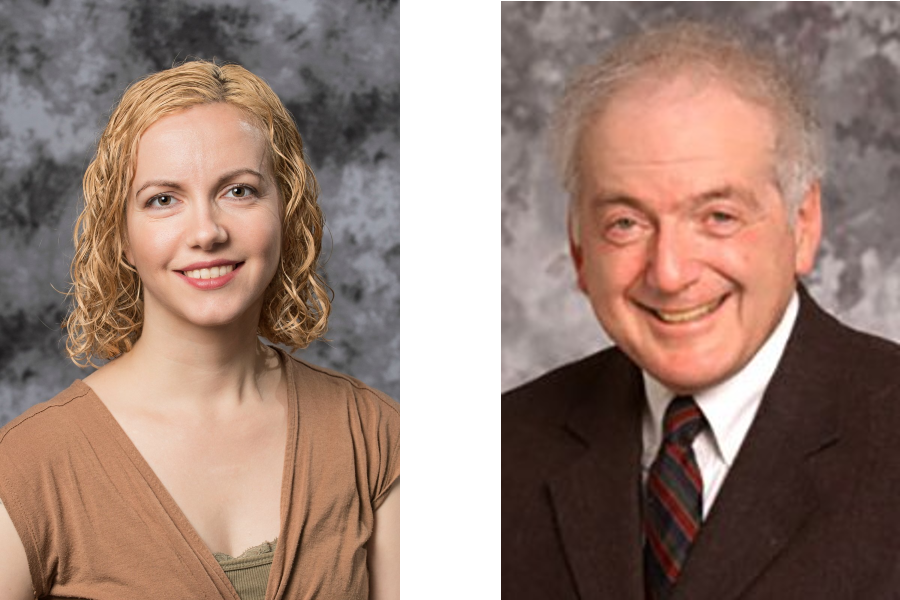
Glesener awarded Allen M. Goldman Faculty Fellowship
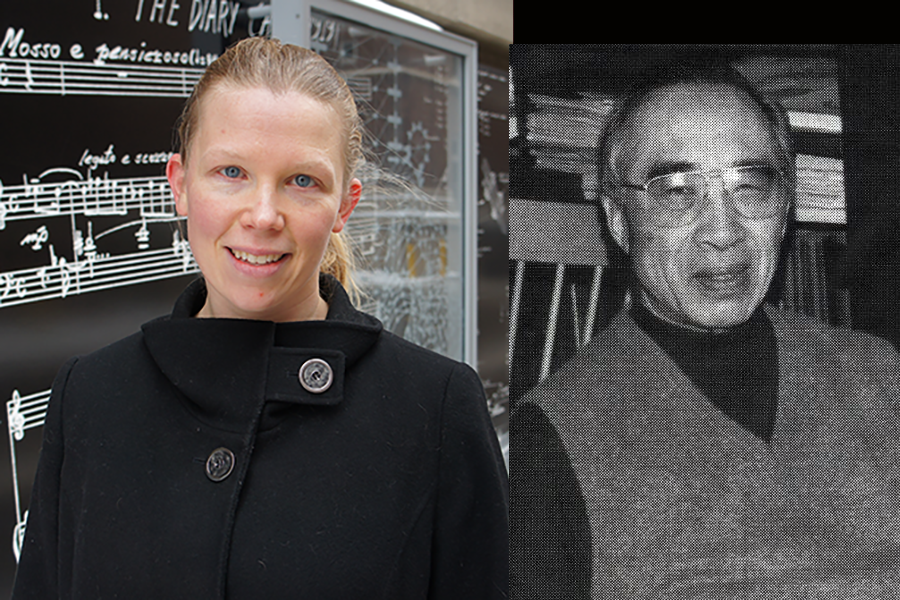
Burnell appointed to Tang Family Professorship
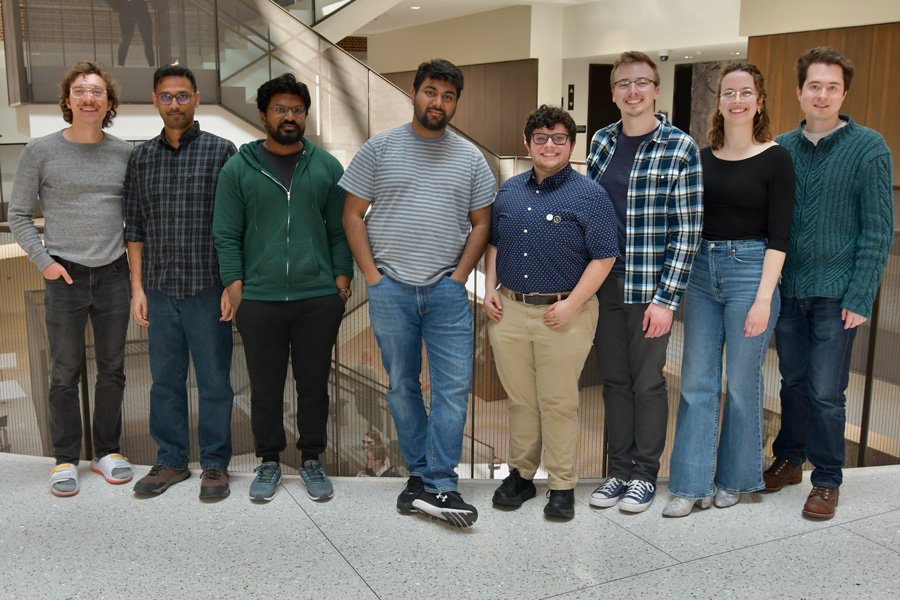
2024 Graduate Awards and Fellowships
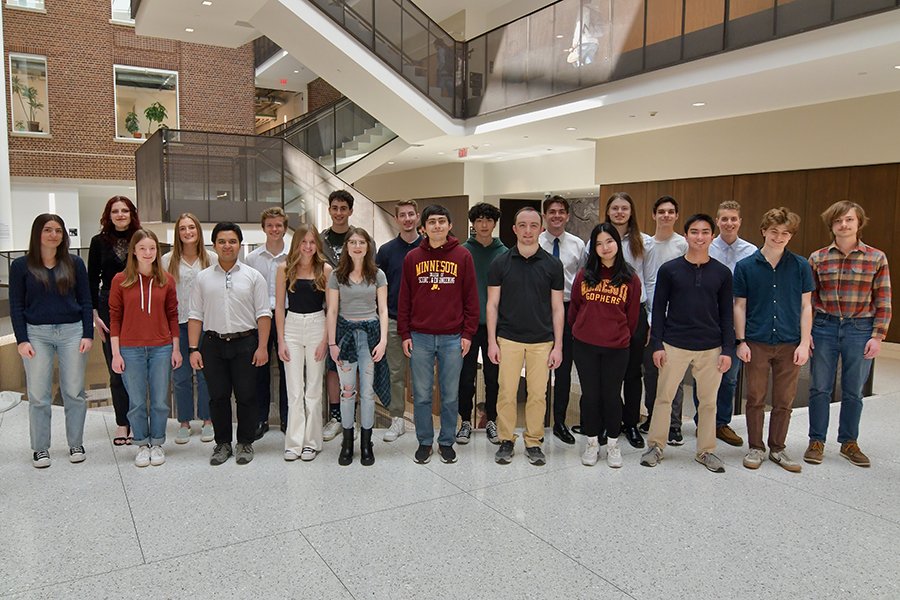
2024 Undergraduate Scholarship Recipients
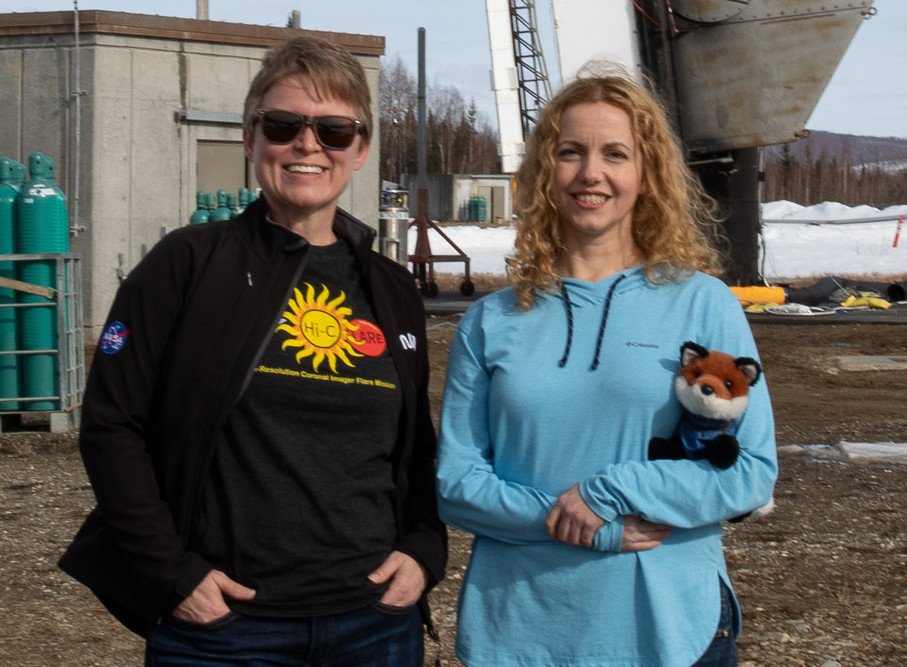
Glesener part of NASA's first solar flare observation campaign
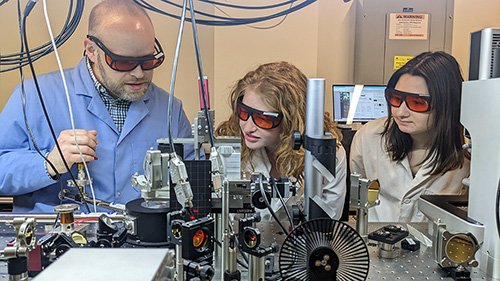
Inside Professor McLeod’s Nano-Imaging Laboratory
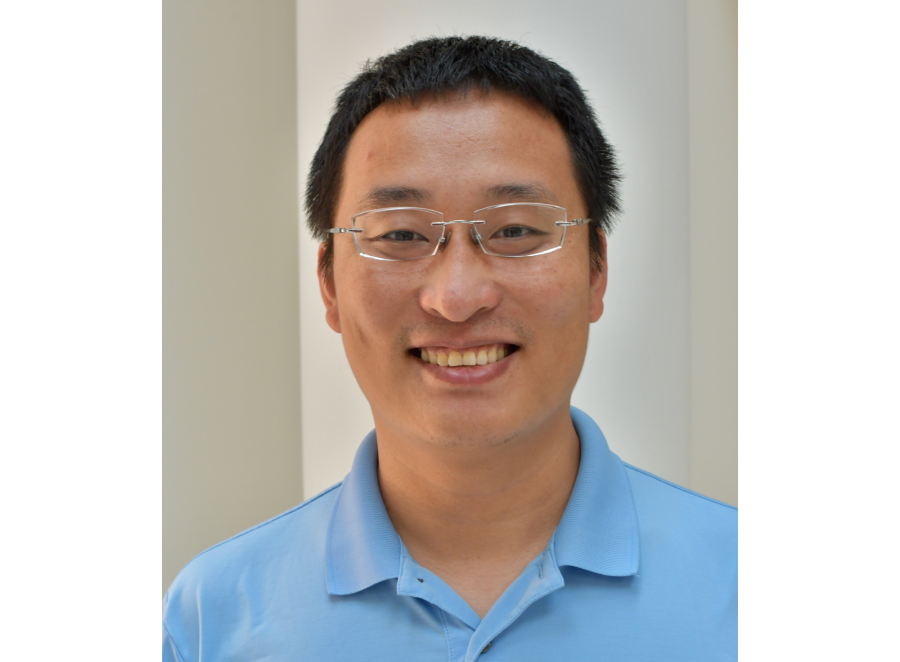
Liu receives prestigious Sloan Research Fellowship for early-career researchers
